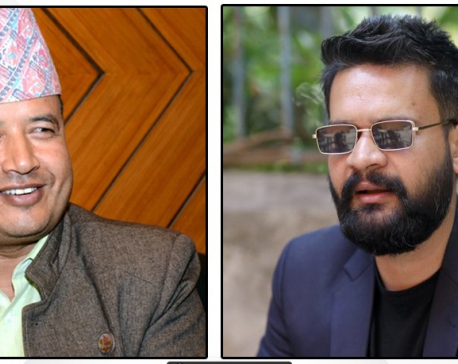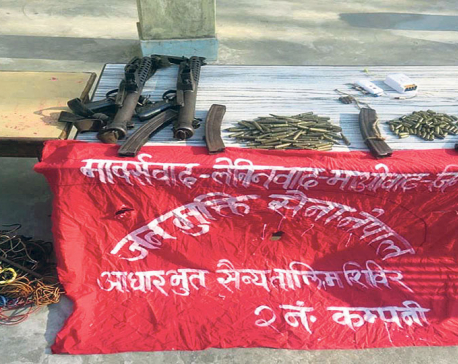
OR
Sri Lanka is in mourning. In the worst violence since the end of the civil war a decade ago, at least 290 people, including 27 foreigners, have been killed and hundreds injured in eight blasts in churches and hotels in and just outside Colombo on Sunday. Police are in search operations on the outskirts of Colombo. Sri Lankan Defense Minister Ruwan Wijewardena has described it as a terrorist attack. Prime Minister Ranil Wickremesinghe has vowed all actions against those responsible for the attacks, “regardless of their stature”. According to the preliminary investigations, two of the blasts are suspected to have been carried out by suicide bombers. Sri Lankan police have detained 24 suspects and they have intensified efforts to bring to book every one responsible for this heinous attack. There has been widespread condemnation of violence from across the world—from Pope Francis to Nepal’s Prime Minister K P Sharma Oli to US President Donald Trump, to Indian Prime Minister Narendra Modi to prime ministers of UK and New Zealand, all have denounced the violence and shown solidarity with Sri Lanka.
It is clear that the attack was targeted at Christian communities. When terrorism and violence get religious and communal color, it becomes more difficult to contain it. Sri Lanka has a long history with Christianity and the majority Christians are Roman Catholics. The explosions have ripped off the roofs and knocked out doors and windows of churches and hotels. Thus it is the time for the world and South Asia to nip all kinds of religious extremism. Terrorist attack in Sri Lanka has sent shockwaves across South Asia. The leaders of this region need to stand unequivocally against terrorism of all manifestations. The architects of South Asian Association for Regional Cooperation (SAARC) have set up SAARC Regional Convention on Suppression of Terrorism. This vital forum could be utilized to fight terrorism. With diplomatic relations established in 1957, Nepal and Sri Lanka have always been on good terms. As the founding members of SAARC and also the members of Bay of Bengal Initiatives for Multi-Sectoral Technical and Economic Cooperation (BIMSTEC), Nepal and Sri Lanka have many things in common. Sunday’s terrorist attack has deeply saddened Nepal and Nepalis as well.
Separately, Sri Lanka’s blasts are also a warning that any country in this region can be vulnerable to terrorist and extremist attacks, they need to keep their intelligence system equipped with all resources and take intelligence reports seriously. It emerges that intelligence agencies had warned of possible threat of attack by domestic radical Muslim group as early as April 4 but Sri Lankan officials took the warning lightly. If the warning was heeded, perhaps this colossal loss of lives and properties could have been averted. Nepal and India have open borders. While this has remained the characteristics of people-to-people ties between the two countries, there have been past incidents of extremist elements misusing the border to foment cross-border crimes, even terrorist activities. It is necessary for both Nepal and India to increase vigilance along the border areas. Terrorism and extremism is a threat for the whole world and it cannot be overcome by an individual effort of an individual country. At this hour of grief, we stand with people and government of Sri Lanka and appeal to South Asian countries and the world to stand together with Sri Lanka in its measures to fight terrorism and extremism of all kinds.
You May Like This

UML leader Basnet to Balen: Don't be pampered just because you have a few hundred fans on Facebook
KATHMANDU, August 26: While the Mayor of Kathmandu Metropolitan City (KMC), Balendra Shah, is speeding up the work to demolish... Read More...

Govt restricts Chand group’s activities
KATHMANDU, March 13: The government on Tuesday outlawed the ‘political activities’ of the semi-underground Communist Party of Nepal led by... Read More...

Physical assaults on bureaucrats unacceptable
Minister for Economic Affairs and Planning of Province 2, Bijay Kumar Yadav was in the headline this week for all... Read More...




Just In
- Govt receives 1,658 proposals for startup loans; Minimum of 50 points required for eligibility
- Unified Socialist leader Sodari appointed Sudurpaschim CM
- One Nepali dies in UAE flood
- Madhesh Province CM Yadav expands cabinet
- 12-hour OPD service at Damauli Hospital from Thursday
- Lawmaker Dr Sharma provides Rs 2 million to children's hospital
- BFIs' lending to private sector increases by only 4.3 percent to Rs 5.087 trillion in first eight months of current FY
- NEPSE nosedives 19.56 points; daily turnover falls to Rs 2.09 billion















Leave A Comment